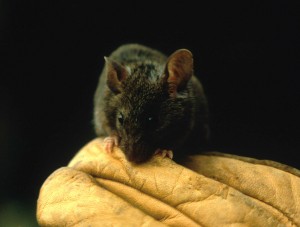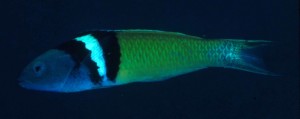Our research interests are in the areas of molecular endocrinology, neurobiology and behavior with a primary focus on the mechanisms and evolution of animal behavior and sexuality. I am particularly interested in applying neurobiological and genomic approaches to problems in behavioral biology and behavioral evolution. The laboratory has also participated in a NSF-funded IGERT program at NCSU focused on the p ossibility of genetic approaches to controlling invasive rodents on islands (please see program webpage here) and currently participates in a multi-institutional consortium evaluating the potential of these approaches (www.geneticbiocontrol.org). This is of interest from a conservation standpoint islands are biodiversity hotspots where invasive rodents do tremendous ecological damage and have endangered and caused the extinction of many species (see an in-depth consideration of this issue and options by IGERT students here).
ossibility of genetic approaches to controlling invasive rodents on islands (please see program webpage here) and currently participates in a multi-institutional consortium evaluating the potential of these approaches (www.geneticbiocontrol.org). This is of interest from a conservation standpoint islands are biodiversity hotspots where invasive rodents do tremendous ecological damage and have endangered and caused the extinction of many species (see an in-depth consideration of this issue and options by IGERT students here).
My students and I are currently pursuing several other projects as well. The first examines the neuroendocrinology and functional genomics of sex- a nd role-change in a coral reef fish (the bluehead wrasse, Thalassoma bifasciatum). Bluehead wrasses exhibit socially controlled functional sex change and discrete alternate male phenotypes. We have been studying the neuroendocrinology of sex and role change in bluehead wrasses for some time and our work has demonstrated a critical and controlling role for the neuropeptide arginine vasotocin, key roles for estrogen synthesis mediated by the enzyme aromatase, and that the behavioral components of sex change can occur when females become behaviorally dominant even if they lack gonads (i.e., have been experimentally gonadectomized). More recently, we have collaborated with Dr. Neil Gemmell of the the University of Otago to use RNAseq methods and characterize gene expression changes in the brain and gonads as wrasses change sex. Our behavioral and sex change work is primarily carried out on the reef at field sites in Florida and Belize. This field-based approach and the amenability of the bluehead wrasse system to it allows our experimental social manipulations and their consequences to be studied in full complexity of nature..
nd role-change in a coral reef fish (the bluehead wrasse, Thalassoma bifasciatum). Bluehead wrasses exhibit socially controlled functional sex change and discrete alternate male phenotypes. We have been studying the neuroendocrinology of sex and role change in bluehead wrasses for some time and our work has demonstrated a critical and controlling role for the neuropeptide arginine vasotocin, key roles for estrogen synthesis mediated by the enzyme aromatase, and that the behavioral components of sex change can occur when females become behaviorally dominant even if they lack gonads (i.e., have been experimentally gonadectomized). More recently, we have collaborated with Dr. Neil Gemmell of the the University of Otago to use RNAseq methods and characterize gene expression changes in the brain and gonads as wrasses change sex. Our behavioral and sex change work is primarily carried out on the reef at field sites in Florida and Belize. This field-based approach and the amenability of the bluehead wrasse system to it allows our experimental social manipulations and their consequences to be studied in full complexity of nature..
Finally, my laboratory participates in work related to developing southern flounder, Paralichthys lethostigma, as an aquaculture cultivar with a focus on temperature-dependent sex determination and developing stocks consisting of only the faster growing females. We have also recently shown variation in juvenile sex ratios from nursery habitats in eastern North Carolina. This work could contribute to fisheries models for these populations and also understanding of how climate change may impact this economically and ecologically important species (Honeycutt et al., Sci Reports 2019 doi: 10.1038/s41598-019-42944-x).